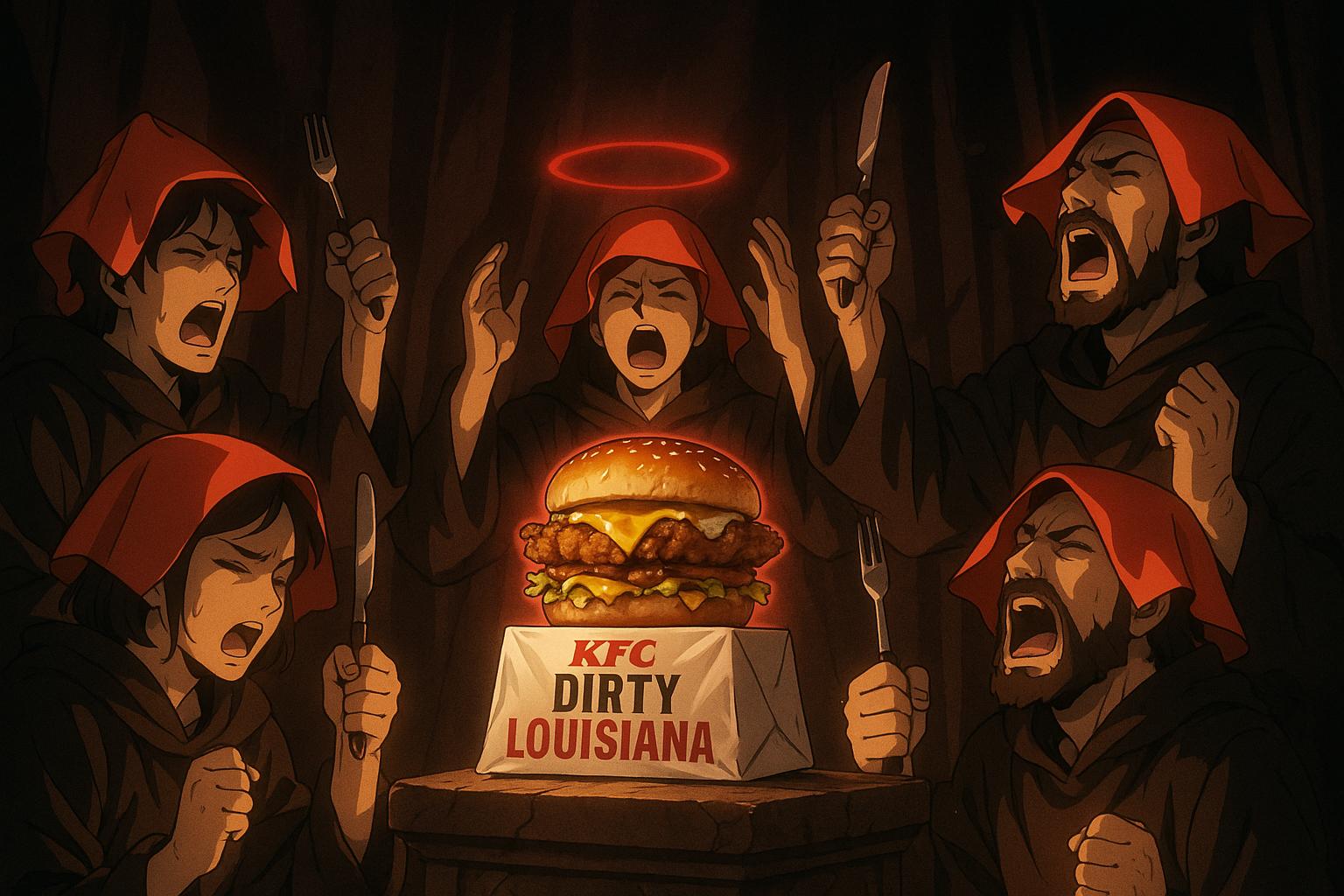KFC’s ongoing marketing strategy, encapsulated in its "Believe" brand platform, has recently sparked significant backlash, particularly surrounding its latest advertisement featuring "The Dirty Louisiana" burger. This 20-second film, created by the agency Mother, portrays a group of avid KFC consumers in a darkened room, participating in what appears to be a ritualistic celebration of the burger. Viewers have expressed outrage, with many citing the ad’s visual styling and thematic elements as deeply problematic.
The depiction of individuals chanting and bludgeoning their cutlery against the table, paired with the inclusion of red napkins worn on their heads, has drawn comparisons to the controversial eating practices involving Ortolan buntings, which are now illegal in France. According to observers, this allusion to a practice that involves the force-feeding and consumption of small birds raises serious ethical concerns and hints at animal cruelty. The dish has been portrayed in popular culture, including notable TV series like "Succession" and "Billions," where it is treated with a sense of intrigue and decadence, leading to further discomfort among viewers regarding its portrayal in a fast-food advertisement.
Danielle Ruggles, the marketing manager for KFC UK & Ireland, responded to the criticism by suggesting that the ad's theatricality was deliberately designed to build an engaging and ritualistic dining experience, rather than a straightforward product endorsement. She claimed it highlighted the brand’s commitment to chicken while fostering a sense of community among its "Believers." Despite these claims, the ad has attracted a notable number of complaints; the Advertising Standards Authority (ASA) confirmed that while the exact figures were not disclosed, the advertisement is likely to face scrutiny in light of public outrage.
Additional context can be drawn from previous KFC advertisements, particularly the "All Hail the Gravy" campaign, which has generated over 1,300 complaints. Critics maintained that the ad endorsed cannibalism and even glorified satanism, which led the ASA to assess whether it warranted formal investigation; however, they ultimately decided against further action, citing a lack of grounds for such measures. This controversy places the latest advertisement in a larger narrative of KFC's audacious marketing tactics, which have frequently walked the line between shock value and engagement.
Interestingly, the ad campaigns' provocative nature has not only drawn criticism but also sparked extensive public discourse online. Many viewers, particularly parents concerned about the appropriateness of the material for children, have vocalised discomfort with the campaign's disturbing imagery, as illustrated by the unsettling scene of a man seemingly submerged in gravy, which further adds layers to the conversation surrounding food advertising standards in the UK.
In a noteworthy tactical shift, KFC previously enjoyed a different kind of publicity with its "clean-eating" campaign—a promotional effort that debuted as a spoof on health trends. This campaign featured a fictitious vlogger promoting a healthy burger, only to reveal it as a ruse for the far more indulgent Dirty Louisiana burger. This cheeky approach resulted in a 39% increase in sales, illustrating KFC's ability to generate buzz, even amid controversy.
Overall, while KFC's marketing strategies have garnered both admiration and substantial criticism, they undoubtedly reflect a bold attempt to differentiate itself in a fiercely competitive market. As the advertising landscape continues to evolve, these campaigns—though polarising—contribute significantly to discussions regarding ethical marketing practices and consumer expectations in the modern age.
Reference Map
- Paragraph 1: [1]
- Paragraph 2: [1]
- Paragraph 3: [1]
- Paragraph 4: [1][2]
- Paragraph 5: [3]
- Paragraph 6: [4][5]
- Paragraph 7: [1]
Source: Noah Wire Services
